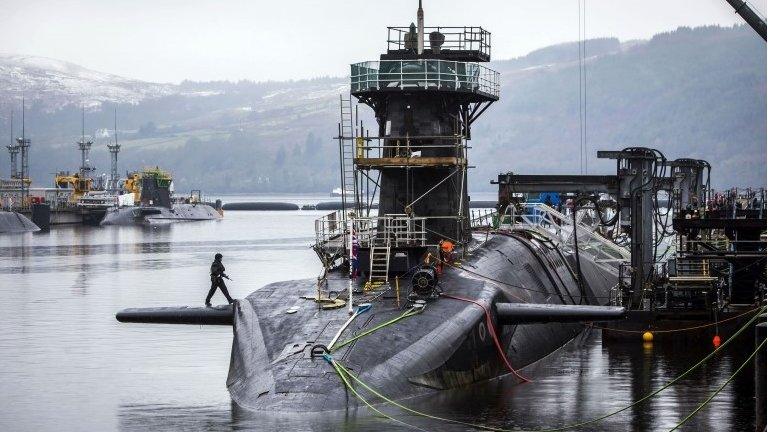Trident renewal: Only one Scottish MP votes in favour
- Published
The UK's four nuclear-armed submarines are based at Faslane on the Clyde
All but one of Scotland's 59 MPs has voted against renewing the Trident nuclear weapons programme in the Commons.
MPs backed the renewal of the UK's nuclear weapons system, voting 472 to 117 in favour in Parliament.
The SNP's 54 members opposed renewal, as did Labour's Ian Murray, Lib Dem Alistair Carmichael and independent MPs Michelle Thomson and Natalie McGarry.
But Conservative MP David Mundell backed the renewal proposals.
The vote, which was held late on Monday evening, means the UK government will press ahead with the manufacture of the next generation of nuclear submarines, which are based at Faslane on the Clyde.
In a statement to parliament, Prime Minister Theresa May said it would be a "gross irresponsibility" for the UK to abandon its nuclear weapons.
She added that the nuclear threat had not gone away, and "if anything, it has increased".
Asked by SNP MP Ian Blackford what message she was sending to the people of Scotland, Mrs May said: "Fifty-eight of the 59 Scottish MPS will be voting against jobs in Scotland which are supported by the nuclear deterrent."
Earlier Brendan O'Hara, the SNP's defence spokesman said "there was absolutely no evidence" the threat of nuclear attack had increased.
He told BBC Scotland programme: "It would also suggest that 190-odd countries that don't have nuclear weapons somehow can't sleep safely in the beds at night.
"It's nonsense - it's another extension of project fear. It's to whip up fear and to make a nation or a people feel insecure in order to secure you're own political ends."

What is Trident for?
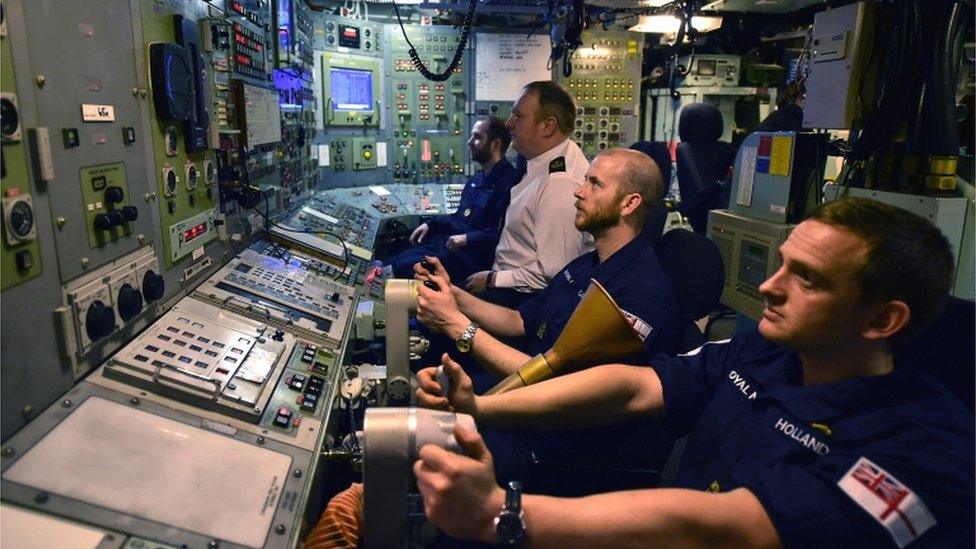
Since 1969, according to government documents, external, a British submarine carrying nuclear weapons has always been on patrol, gliding silently beneath the waves, somewhere in the world's oceans.
The logic is to deter a nuclear attack on the UK because, even if the nation's conventional defence capabilities were destroyed, the silent submarine would still be able to launch a catastrophic retaliatory strike on the aggressor, a concept known as mutually assured destruction.
The submarines, based at Faslane on the River Clyde, carry up to eight Trident missiles; each can be fitted with a number of warheads.
Read more about the history of the UK's nuclear weapons system

He said Trident was a "political weapon" designed to keep the UK on the "top tier of the world stage".
The country's economy cannot afford both nuclear weapons and conventional defences, he added.
"Either you bolster your conventional defences or you are a nuclear state," he said. "In which case, very quickly, your last line of defence becomes your first line of defence."
Free vote
The Labour party is split on the issue of Trident, with its leader, Jeremy Corbyn, opposed to renewal.
Ian Murray, the former shadow Scotland secretary, said the split reflected similar attitudes in opinion across the country, and he welcomed Labour MPs being given a free vote on the issue.
He said he would be voting against renewal as "all nuclear weapons are immoral".
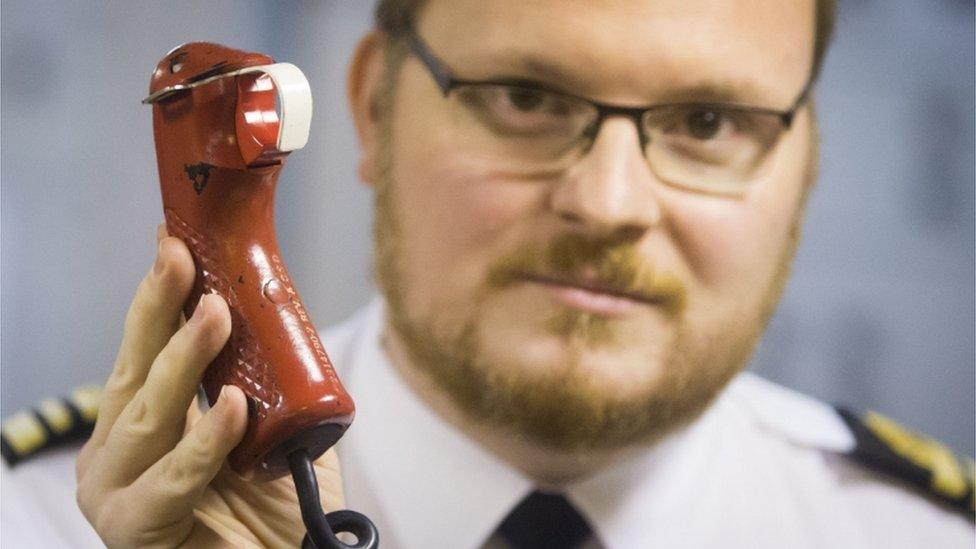
Each of the UK's four nuclear-armed submarines has a Tactical Trigger, that would be used in the final stage of a nuclear missile launch
He said the risk of Scottish jobs being lost if Trident was scrapped was "something that has to be resolved".
But he added: "I don't think that should be the driving force in determining whether or not we renew the Trident weapons system. I think this has to be an issue of conscience."
Meanwhile, Mr Carmichael said he believed the UK should reduce its number of nuclear-armed submarines rather than scrapping them altogether.
But he said the vote was a yes or no decision, and he was unable to support the proposals put forward by the UK government.
Mr Carmichael said the requirement for the UK to have at least one Trident submarine at sea at all times was "out-dated", and that the UK should join together with other Nato countries to provide a nuclear defence.
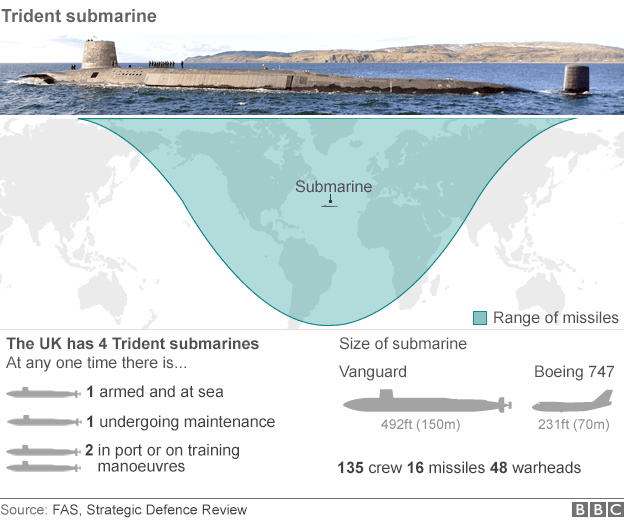
Defence Secretary Michael Fallon said the replacement of the four nuclear-armed submarines - at an estimated cost of £31bn - would help to protect the country from nuclear attack for 30 years.
"We can't choose the threats that are out there nor can we predict exactly what they might be in the 2030s, 2040s, or 2050s," he said.
"We have to prepare to deal with terrorism, with conventional threats by strengthening our armed forces and we have to be sure we can respond and deter any nuclear attack as well."
He added: "We will continue to work for multilateral disarmament but meantime it is too dangerous a world to take the gamble of not modernising our own deterrent."
Gary Smith, Scotland secretary for the GMB union, said politicians should consider the jobs that are tied into the renewal of Trident.
He said: "Tens of thousands of jobs across the UK are dependent on Trident renewal and with that the building of the four submarines that's been promised.
"And the issue really is whether those submarines will be built in the UK or whether they will manufactured and built in America.
"And that's what politicians in Scotland should be focusing on here today - jobs and working class communities."
- Published19 July 2016
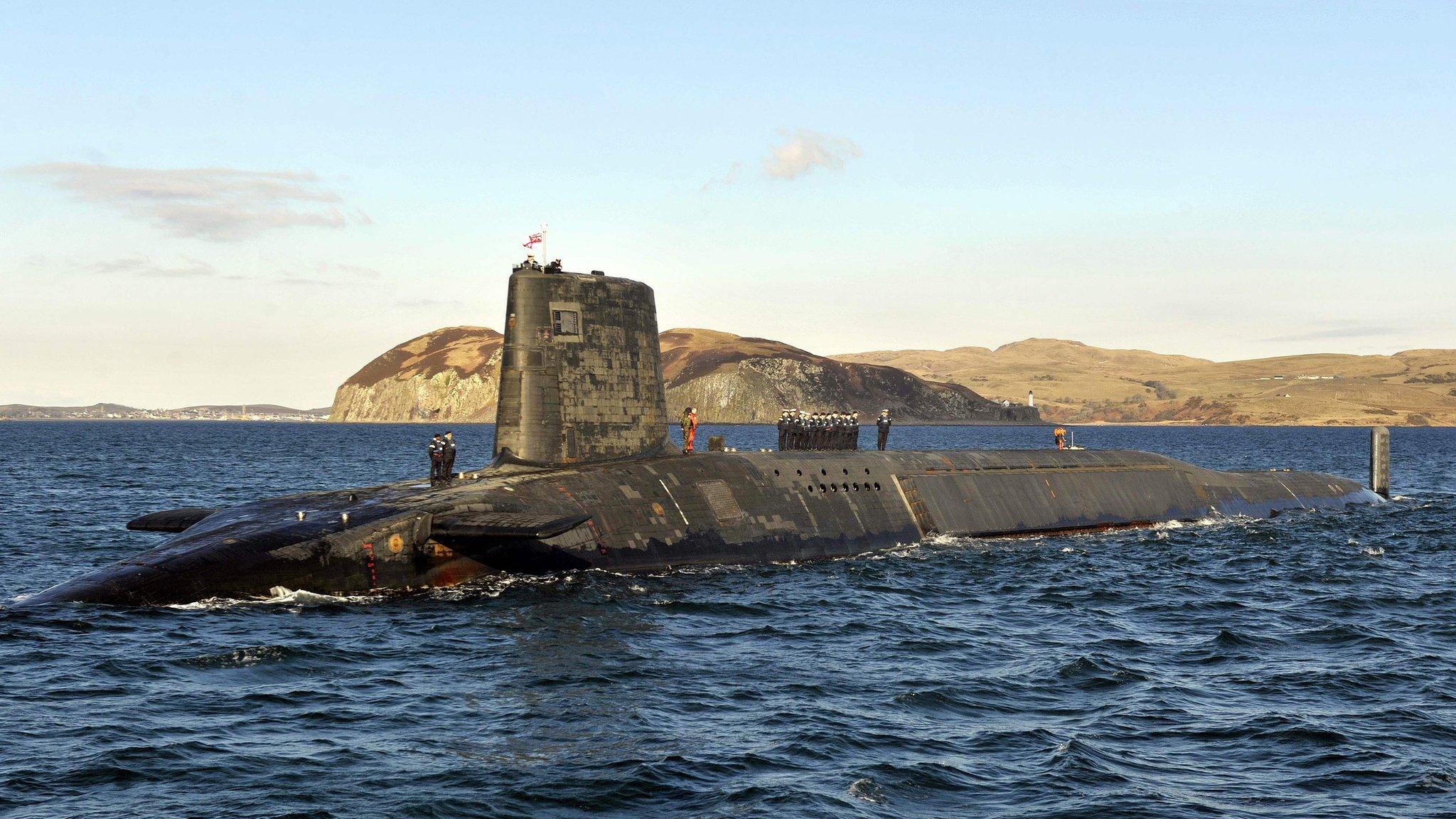
- Published18 July 2016
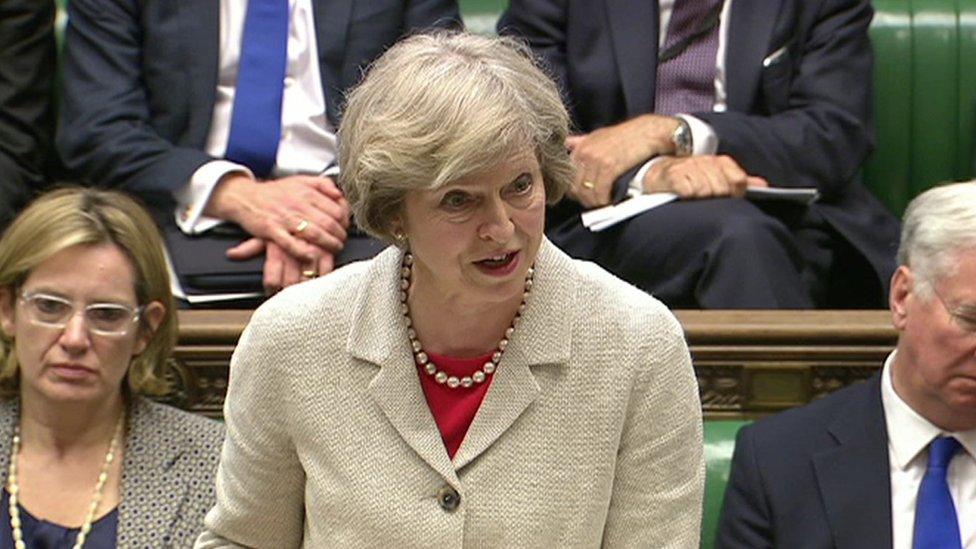
- Published23 May 2017
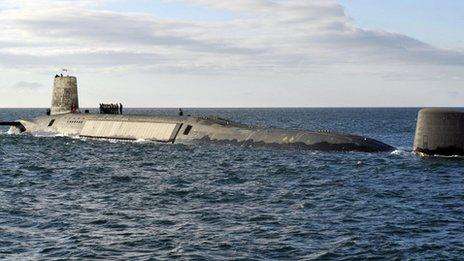
- Published17 July 2016
